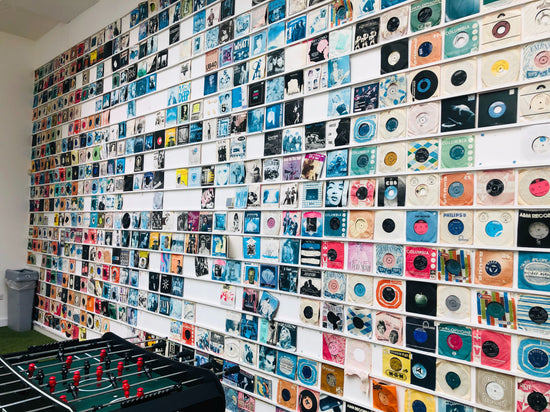Music has a unique ability to evoke strong emotions and memories, and this is why it is often associated with nostalgia. Nostalgia music is a broad and subjective category because what triggers nostalgia can vary greatly from person to person. It's often tied to personal experiences, memories, and emotional connections. Many artists intentionally create music with a nostalgic feel to tap into these sentiments and create a connection with their audience.
What makes music nostalgic?
Music has a powerful ability to evoke emotions and memories, which is why it often feels nostalgic.
Several factors contribute to this phenomenon:
1. Emotional Connection
Music can tap into our emotions. When we associate a particular song or piece of music with a significant event, person, or period in our lives, the emotions we felt during that time become linked to the music. Hearing the song again can bring back those emotions and create a sense of nostalgia.
2. Memory Recall
The brain is highly sensitive to auditory stimuli, and music has a unique way of triggering memories. When we hear a song from the past, it can activate the neural pathways associated with the original experience, leading to vivid recollections and a sense of reliving the moment.
3. Cultural and Generational Identity
Music often plays a crucial role in defining cultural and generational identities. People tend to connect with the music of their youth, which becomes intertwined with their sense of self and belonging. As time passes, revisiting those musical elements can evoke a longing for the past.
4. Temporal Context
Music is often tied to specific periods and trends. When we hear a song from a particular era, it can transport us back to that time and place, providing a glimpse into the cultural, social, and personal context of that period.
What songs are considered nostalgic?
Nostalgic songs vary greatly from person to person based on individual experiences and preferences. However, certain songs are often considered universally nostalgic due to their widespread popularity and enduring impact.
Here are some examples across different genres and eras:
The Beatles - "Hey Jude" (1968): A classic from the legendary Beatles that has stood the test of time.
Queen - "Bohemian Rhapsody" (1975): Known for its operatic sections and intricate structure, this Queen masterpiece remains iconic.
Michael Jackson - "Billie Jean" (1983): Michael Jackson's music often evokes a sense of nostalgia, and "Billie Jean" is a prime example.
Bob Marley - "Three Little Birds" (1977): Bob Marley's reggae anthem has a timeless and uplifting quality.
Bon Jovi - "Livin' on a Prayer" (1986): An '80s rock anthem that continues to be a crowd-pleaser.
Nirvana - "Smells Like Teen Spirit" (1991): A defining song of the grunge era, capturing the spirit of the early '90s.
Oasis - "Wonderwall" (1995): A Britpop classic that resonated with a generation in the mid-'90s.
Britney Spears - "...Baby One More Time" (1998): A pop sensation that marked the late '90s and remains an iconic piece of pop culture.
Eminem - "Lose Yourself" (2002): This rap anthem became synonymous with determination and seizing the moment.
Adele - "Someone Like You" (2011): Adele's soulful ballad has a timeless quality that resonates with many.
What techniques invoke nostalgia?
Creating a nostalgic atmosphere in music involves a thoughtful blend of melody, arrangement, lyrics, and production techniques. To evoke nostalgia, consider incorporating familiar chord progressions, simple melodic motifs, and timeless instrumentation. Vintage instruments, such as analogue synthesizers or classic guitars, can add an authentic touch while mimicking production styles of the past and using lo-fi aesthetics can enhance the retro feel.
Nostalgic lyrics will often tell personal stories or touch on universal themes, incorporating specific cultural references or objects from the past. You can also experiment with tempo, favouring slower speeds for introspection, and utilise rhythm patterns typical of the era you're referencing. Another method of invoking nostalgia is using production techniques like vinyl crackle, tape saturation, and reverb to simulate the sound quality of older recordings.
Including samples from old movies or radio broadcasts further establishes a sense of time and place. Expressive vocals and emotive instrumental performances contribute to the overall emotional delivery, enhancing the nostalgic impact. Ultimately, authenticity is key—understand the elements of the chosen era and integrate them thoughtfully to create a genuine emotional connection with the listener.
What makes vinyl records so nostalgic?
Vinyl records evoke nostalgia through a combination of sensory, cultural, and historical elements. The analogue warmth of vinyl produces a distinctive, rich sound, creating a unique sonic character that is often associated with nostalgic feelings. The tactile experience of handling vinyl—placing the needle on the record, flipping sides, and engaging with the album cover—adds a physical dimension to the listening experience that digital formats lack.
Vinyl's large album artwork contributes to the visual appeal, and the deliberate sequencing of songs on sides A and B encourages a more immersive, intentional listening experience. The collector's appeal of vinyl is heightened by the joy of hunting for rare or vintage records, contributing to the nostalgic allure. Moreover, vinyl records are often associated with specific musical eras, triggering nostalgic feelings for the cultural and historical context of those times.
The ritualistic nature of vinyl, from setting up the turntable to the deliberate act of listening, further enhances the sense of nostalgia. Ultimately, vinyl records offer more than just a means of playing music—they embody a cultural and multisensory experience that connects listeners to the past in a way that digital formats often cannot replicate.















